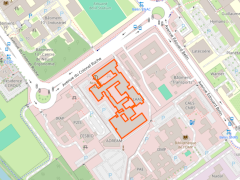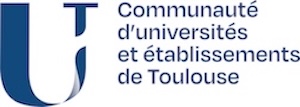- (upcoming) ANR PEPR 5G et Réseaux du Futur, DONUTS - Design and mOdeling of multiscale multitechnologies Networks of the fUture: from cellular 5/6G to non Terrestrial networkS (Mar. 2025 - Feb. 2029)
- This project is a pioneering initiative aimed at seamlessly integrating space, air, and ground networks to significantly enhance communication, navigation, and remote sensing capabilities on a global scale.
- I am coordinator of Working Package 2 on "Multi-technology and multi-scale resource management"
- Other partners: CEA, CITI, ICube, IRIT, LIG, LIP
- 394 k€ for LAAS-CNRS (2.4 M€ in total)
- ANR JCJC LAPSUS - Low-power Advanced Positioning Systems Under Study (Oct. 2023 - Sep. 2027)
- This project aims at answering the following research questions: can very low power devices be localized with an acceptable precision for years without changing (or recharging) the feeding battery through LoRaWANs instead of GPS? What is the capacity of such a system? Is this solution viable for tracking mobile devices?
- I am the Principal Investigator/Coordinator
- 316 k€
- ANR PRCE STEREO - Space-Terrestrial Integrated IoT (Mar. 2023 - Feb. 2027)
- The objective of this project is to achieve a Space-Terrestrial Integrated IoT networks, in which IoT devices can seamlessly hook to gateways on ground or directly to LEO satellites when no network infrastructure is present.
- Other partners: INRIA, IRIT, Kinéis, LIG
- 168 k€ for LAAS-CNRS (934 k€ in total)
- (concluded) LION - LoRa-enabled IoT Orbiting Networks (Sep. 2021 to Aug. 2023), funded through CIMI Toulouse
- This project addresses open research challenges concerning the use of the LoRa technology for the ground-to-satellite links.
- I was the Principal Investigator/Coordinator
- 20 k€
- (concluded) STIC-AmSud STARS - SaTellite networks Architectures pRotocols and informaticS (Jan. 2021 - Dec. 2022)
- The challenges involved in the modernization of satellite-based communications are tackled by considering the requirements and restrictions of the deployments of large-scale satellite constellations including nano and small satellites.
- Other partners: Universidad Nacional de Córdoba (Argentina), Universidad de Chile (Chile)
- 5 k€ for LAAS-CNRS













